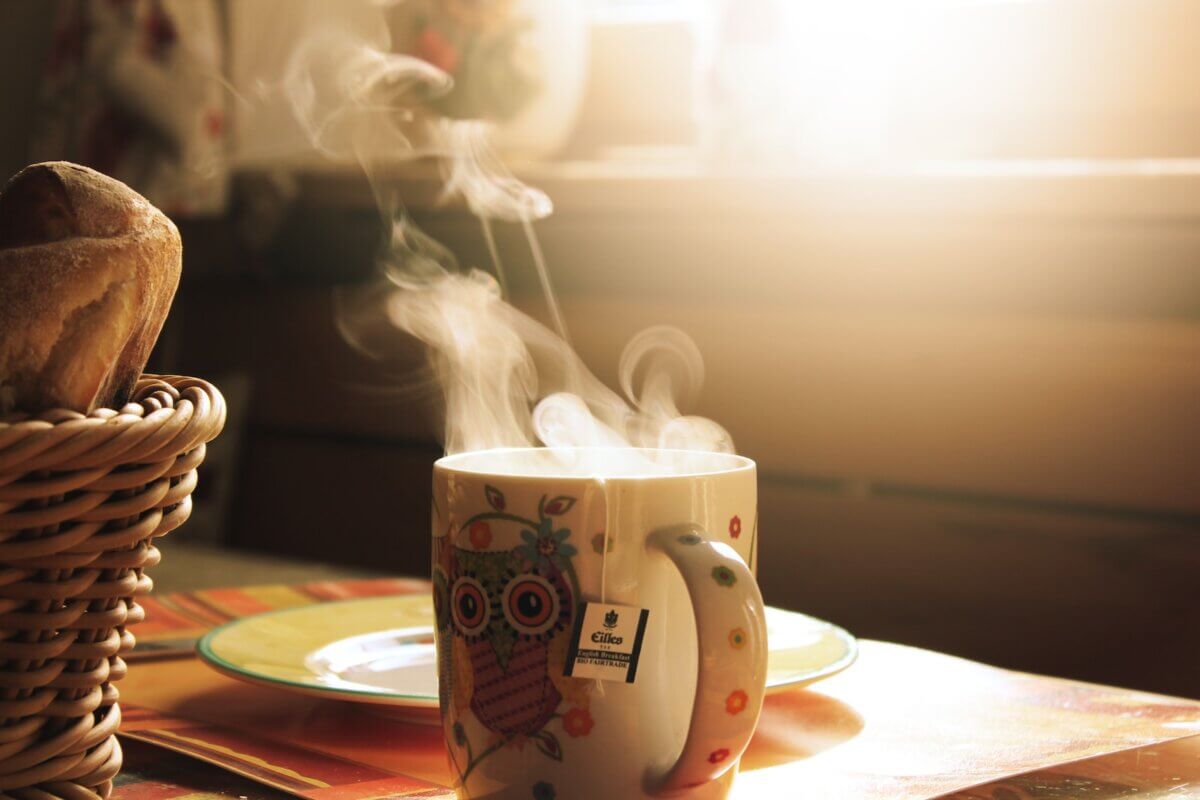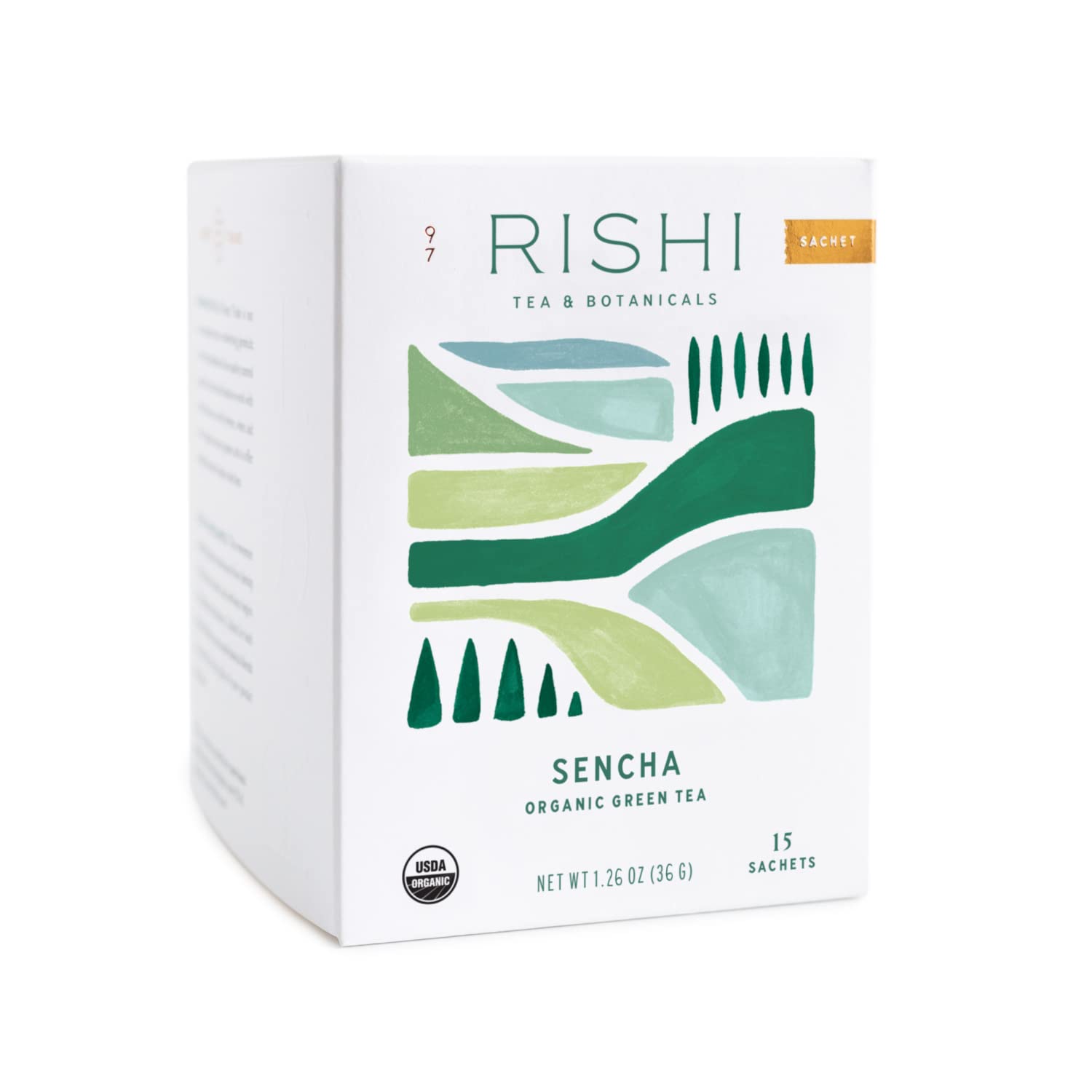While tea itself cannot diagnose or treat depression, certain varieties and their components have shown promise in alleviating some symptoms and promoting overall well-being, which can be beneficial for people experiencing depression. We at StudyFinds read through different expert sources to compile a list of the top seven best teas for depression that were recommended most, so you don’t have to.
Important points to remember:
- Tea is not a substitute for professional medical care: If you experience symptoms of depression, seek help from a doctor or mental health professional. Tea can be a complementary approach but not a replacement for necessary treatment.
- Limited research: While these teas show promise, research on their effectiveness for depression is still ongoing, and results may vary.
- Individual responses: People react differently to teas, and what works for one person may not work for another.
- Potential side effects: Some teas can interact with medications or have side effects, so research any tea before consuming it and consult your doctor if you have any concerns.
How does tea help with depression?
Certain teas boast mood-boosting properties. Green tea’s L-theanine soothes and focuses, while St. John’s wort’s hypericin tackles mild to moderate depression (check with your doctor first!). Chamomile and lavender gently calm and lull you to sleep, crucial for managing depression.
Finding your perfect brew is key. Feeling anxious? Chamomile, lavender, or lemon balm offer serenity. Need focus? Green tea’s L-theanine can be your ally. Craving a mood boost? Rosehip’s vitamin C invigorates, while peppermint refreshes.
You are not alone, and there are many resources available to help you manage depression aside from trying new teas. If you need a lift, we at StudyFinds have researched across multiple expert sources to bring you today’s list of the top seven best teas for depression. Don’t agree with our suggestions or feel we missed out on a good one? No worries. We would love to hear from you in the comments below!

The List: Best Tea for Depression, According to Experts
1. Green Tea
If your morning cup of coffee is making you anxious, you might consider switching to green tea. Green tea is high in caffeine and L-theanine, an amino acid that may reduce anxiety. “Researchers suggest that green tea can exert protective effects against depression by decreasing oxidative stress. Polyphenols present in green tea also have antidepressant effects,” shares Health Match.

Let’s face it, green tea is considered to be one of the healthiest beverages on this planet. “Green tea contains several antioxidants that can help you in enhancing brain functions,” informs Halmari Tea.
Green tea is loaded with many health benefits, including aiding in depressive symptoms. “A 2009 study of participants ages 70 and older showed that there was a lower prevalence of depression symptoms with increased green tea consumption,” says Healthline.
Check out our list of the best green teas here.
2. Chamomile Tea
A common method for combatting depression is trying to get better sleep. “We all know sleep is incredibly valuable for our mental well-being, but it can be elusive for all too many of us. Insomnia is unfortunately a compounding issue for those with mental health issues. People turn to meditation, sleeping pills, light therapy, etc. to fix the issue. If you are looking for the right type of tea to put you to sleep though, look no further than chamomile tea. It’s an herbal tea and made of dried chamomile flowers, which means no caffeine,” states MHAO.

The only people who should avoid this tea are those with allergies to chamomile and pollen, along with infants and young children. “Chamomile tea is common among those who are struggling with depression or anxiety,” adds Halmari Tea.
Chamomile tea is widely regarded as a mild sleep inducer. It may be beneficial if you have insomnia due to depression or anxiety. Research has also shown that chamomile may reduce anxiety in patients with mild to moderate generalized anxiety disorder,” shares Health Match.
3. Lavender Tea
Think about it, just the smell of lavender alone can put your mind at ease. “It’s been used to treat depression and anxiety as an essential oil and extract, and studies from Germany found it to be as effective as other pharmaceuticals for anxiety and depression without the downside of drowsy side effects. Stabilizing the mood and promoting sleep are only some of the benefits of lavender tea. Unless it is mixed with green or black tea though, you won’t get any caffeine,” says MHAO.

Lavender essential oil has long been used to help treat depression and anxiety in Ayurvedic medicine and other holistic regimens. “In one study of the German lavender supplement known as Silexan, researchers found the lavender oil was just as effective as Lorazepam—a sedative prescribed for anxiety symptoms. The research also found that lavender didn’t have the drowsy side effects associated with many anxiety and depression medications. That means you can enjoy this tea all day long while still being able to focus and work,” adds Sencha Tea Bar.
Along with the amazing benefits for your mind, the flavor is delightful. “Consuming lavender tea can help reduce depression and anxiety scores, as shown in a clinical trial involving older people,” states Health Match.
4. Ginseng Tea
Drinking this tea can be very beneficial to reduce depression and anxiety in the body. “Gingseng tea reduces the feeling of fatigue which leads to depression and is quite effective against hormonal or office stress. It has a bitter taste that later gives a carrot-like flavor at the end. Gingseng tea has been quite effective in improving mood and boosting cognitive function which improves the problem of depression. You can add a little milk in ginseng tea if you find it bitter and tasteless,” says Only My Health.

You can have this tea anytime in the day. “A randomized, double-blind, placebo-controlled study examined the effects of ginger in 90 subjects with chronic fatigue. Researchers found that ginseng helped improve mood and boosted cognitive performance,” explains Sencha Tea Bar.
Ginseng tea comes from Korea and uses the root of the ginseng plant. “Ginseng has a more bitter taste with a touch of sweetness and has been compared to carrots. Not only will it boost your mood, but it’s also known to help your immune system and cognitive function. Mental fatigue and stress go hand-in-hand, and burnout can really take a toll. Now and then, it’s good to remind yourself that you’re doing just enough and thank your body for all its hard work with rest and kindness; ginseng tea is here to help with that,” offers MHAO.
5. Lemon Balm
Lemon balm tea is specific in its taste and flavor. “Lemon Balm tea is extremely beneficial because it has high levels of antioxidants that are known to reduce stress levels in humans. This tea belongs to the mint tea family and offers a great combination of taste and freshness to the person,” says Only My Health.

Lemon balm tea can show its affect in 15 days of regular consumption, it reduces moderate anxiety and depression. “A study published in Neurochemical Research found that lemon balm tea increased GABA levels and decreased corticosterone levels including those of cortisol (4). GABA is a neurotransmitter that induces relaxation while cortisol is known as the human stress hormone. This research shows that drinking lemon balm tea may help treat symptoms of anxiety on a chemical level in the brain,” informs Sencha Tea Bar.
Lemon tea has a calming effect on the person which makes it great to have before going to bed. “A 2014 research article of two small studies, in which participants drank iced tea with lemon balm or ate yogurt with lemon balm, showed positive effects on mood and anxiety level reduction,” adds Healthline.
6. Ashwagandha Tea
Ashwagandha tea is recommended by many people and is treated as an herbal medicine as well. “Ashwagandha is known to manage stress levels and other mental health disorders. It helps to improve a variety of functions like boosting brain function, reducing anxiety and depression, and lowering blood sugar levels and cortisol levels in the body,” says Only My Health.

Ashwagandha tea helps improve immunity which increases dopamine levels in the body and reduces stress hormones and depression symptoms. “Ashwagandha is an ancient medicinal herb. It’s classified as an adaptogen, meaning it can help your body manage stress. This traditional Ayurvedic herb is known for its medicinal properties and has been used for centuries to protect people’s health,” offers Healthline.
Ashwagandha tea is a medicinal herb that is also famous in Ayurveda. “It refreshes your brain and helps in managing body functions as well. It is also helpful in relieving anxiety and depression. Because of its ancient popularity, people have trusted ashwagandha as a natural remedy. It is also helpful for hair as well,” states Halmari Tea.
7. Peppermint Tea
Peppermint tea boasts powerful anti-anxiety properties thanks to its invigorating scent. “The tea is made by infusing the leaves of the peppermint plant in hot water. The result is a pale green tea that offers a delightfully refreshing aroma with hints of pine and a tingling flavor,” says Sencha Tea Bar.

Peppermint offers the same effects on the nervous system as other herbal teas, helping to reduce cortisol levels and boost mood. “Peppermint is believed to have an uplifting effect on mood. Its bright, invigorating flavor is an instant boost, especially when blended with green tea,” shares The Whistling Kettle.
The tea boasts anti-inflammatory properties that can help to reduce pain. “Animal model studies have shown that peppermint tea can relax the central and peripheral nervous systems,” adds Health Match.
Check out our list of the best peppermint teas here.
You might also be interested in:
Sources:
Note: This article was not paid for nor sponsored. StudyFinds is not connected to nor partnered with any of the brands mentioned and receives no compensation for its recommendations. This article may contain affiliate links in which we receive a commission if you make a purchase.
